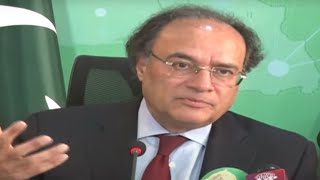Algeria's economy is booming, billion-dollar developments are planned and oil and gas export revenues are soaring, but many Algerians are still unhappy about living conditions in the North African country.
"The macro economy is great. But the micro economy is still lagging behind," said university teacher and political analyst Nacer Jabi.
"Social problems are a reality ... we do have good economic indicators ... but we do also have high unemployment particularly among the youth. We do have a severe housing crisis, we do have water problems, poor education and so forth."
Algeria's economic growth is expected to reach 5.8 percent this year, and 8 percent in 2008. Energy revenues in the OPEC member will likely go beyond $50 billion, up from $45.6 billion in 2005.
THE STATISTICS ARE IMPRESSIVE: foreign debt, estimated at $15.5 billion, is expected to shrink to $5 billion by the end of 2006; foreign exchange reserves are estimated at $63 billion, and the government last year launched a five-year economic development plan worth $80 billion to restore hope among the 33 million inhabitants.
But hope is in short supply.
"There is resentment. There is anger. Riots erupt daily all over the country. The youth want jobs, houses, and a decent future. The problem is that the oil industry doesn't provide many jobs," Jabi said.
Officials say unemployment was at 15.3 percent in 2005, down from 17.7 percent in 2004, and 23.7 percent in 2003. Labour Minister Tayeb Louh said recently that the jobless rate will be less than 10 percent in 2009.
But independent analysts say the number of jobless is much higher than official figures. Ecotechnics, a private consultancy firm, put it at 24 percent.
"I have sent dozens of CVs to private and state firms. Seventy percent did not respond and 30 percent said I did not meet the criteria," said Mahmoud, 23, an engineer who has been out of work since 1999.
"What to do? Probably sell cigarettes in the streets," the engineer, who did not want to give his last name, said angrily in the crowded neighbourhood of Bachdjarah in the capital Algiers' eastern suburbs.
Mahmoud's plight is repeated throughout Africa's second largest country, posing an urgent and sensitive challenge.
Providing jobs and improving housing, health and education are key to stabilising a society still reeling from a decade of violence in the 1990s.
One of Africa's most brutal conflicts, the struggle between security services and Islamist armed groups cost an estimated 200,000 lives and caused damage estimated at $20 billion.
The violence was sparked when the military cancelled legislative elections in 1992 that a radical Islamic party was set to win. Anger at an unresponsive government, lack of jobs and poor provision of basic services helped boost support for militant Islamist groups.
Slimane Hamiche, a journalist specialised in social conflicts, said there was a risk peace could inflame anger over social issues.
"During the years of terrorism, Algerians were focusing on security issues. Now that peace is back, social demands are rising and will continue to be very high in the scale of priorities," Hamiche told Reuters.
Algeria is still struggling to reform after decades of central planning but corruption, red-tape and lack of transparency are obstacles to luring much-needed foreign investment and know-how.
Hamiche said many people were suspicious of reforms in a country that had a state-dominated economy until the early 1990s. A ban on private sector foreign trade was lifted in 1991, but years of strife delayed the onset of liberalisation.
"Hundred of thousands people lost their jobs during the last decade as state firms were obliged to shut down as they were unable to create growth but nothing has come yet to replace what has been lost," Hamiche said
"Under the Soviet-style economy, stability was guaranteed. It is no longer the case today. Algerians are afraid."
Hamiche said resentment was also fuelled by a series of financial scandals "showing that the oil money is to enrich those who are already rich and impoverish those who are already poor."
Oil and gas account for around 97 percent of export revenues. Algeria's oil output is estimated at 1.4 million barrels per day, with plans to increase this to 2 million barrels per day by 2010.
Outside hydrocarbons, Algeria's exports -- at around $600 million in 2005 -- are marginal.
"Obviously, we should congratulate the oil not the government for the recovery of our economy," said Hamiche.
"Why? Because most of our firms are unable to compete with foreign firms, and others are not even able to pay the wages of their employees. The government did not succeed in improving the situation."
BR100
12,079
Decreased By
-111.6 (-0.92%)
BR30
36,602
Increased By
19.8 (0.05%)
KSE100
116,053
Decreased By
-202.4 (-0.17%)
KSE30
36,578
Decreased By
-25.8 (-0.07%)





















Comments
Comments are closed.